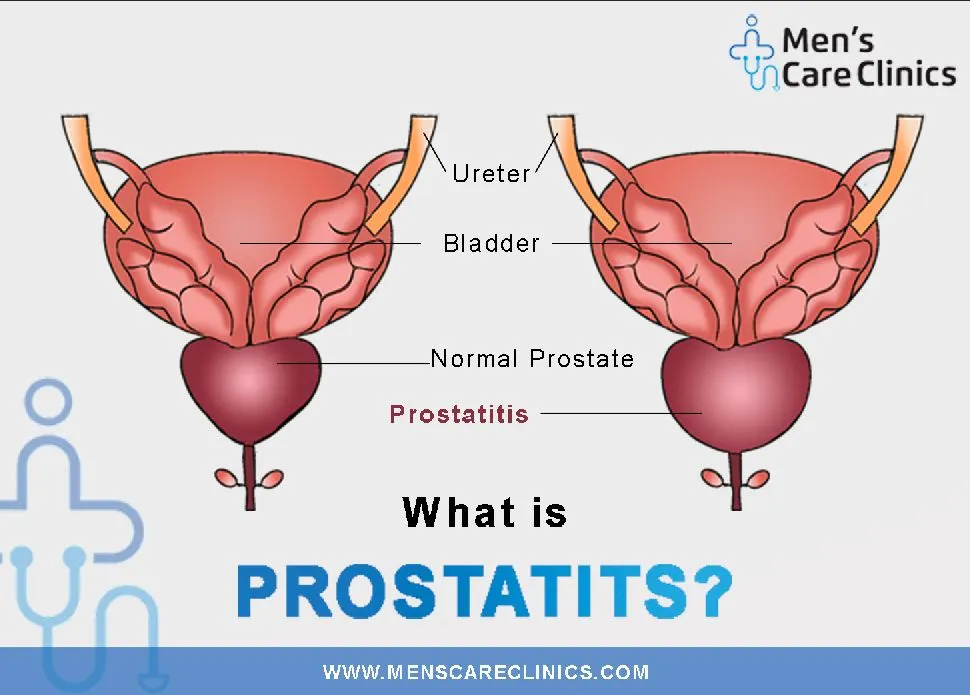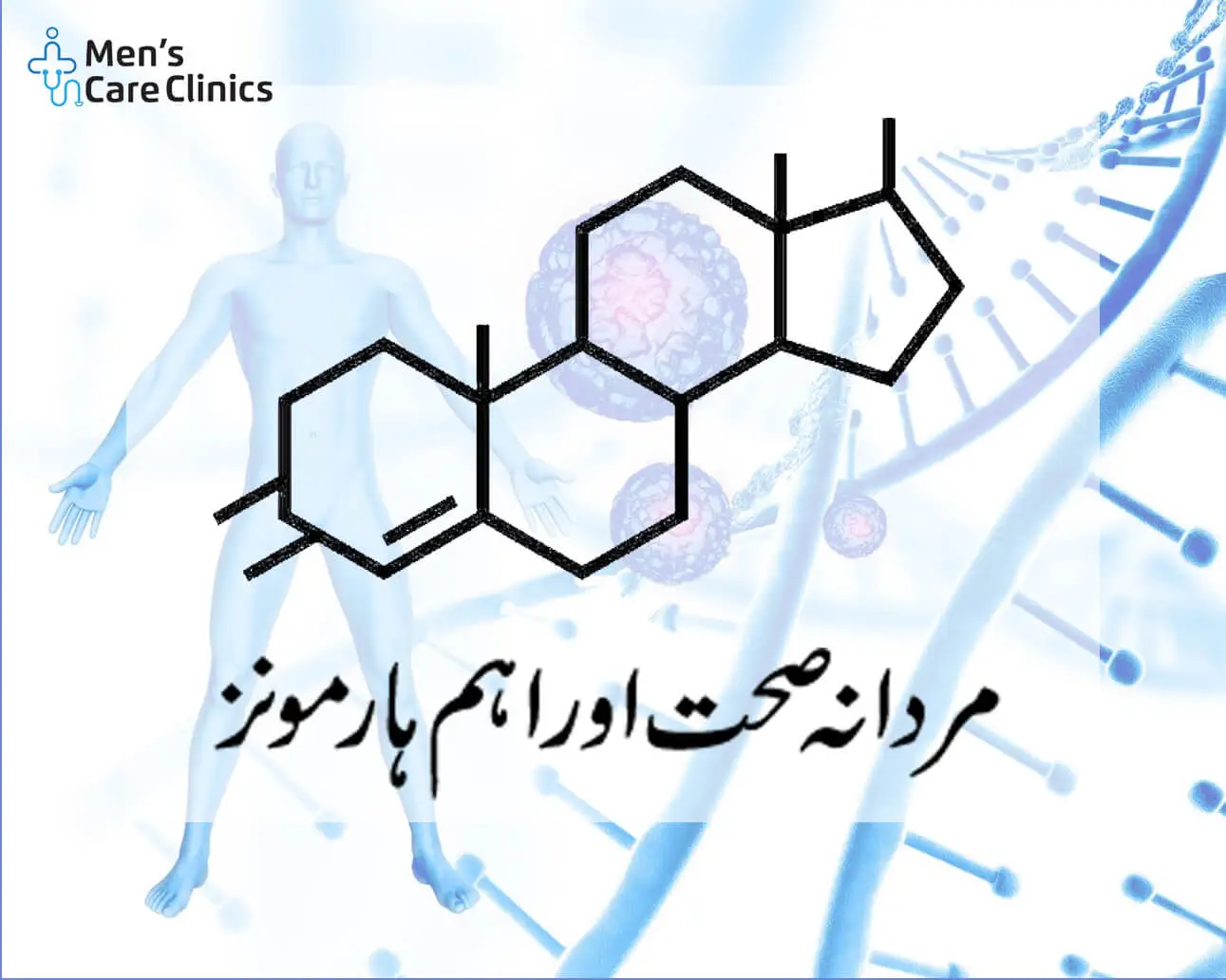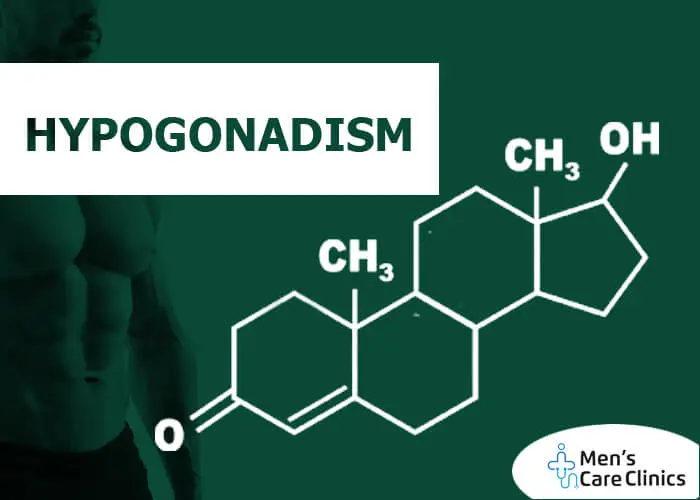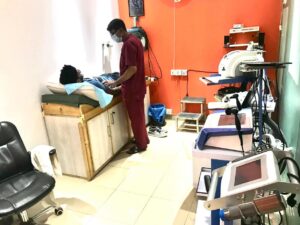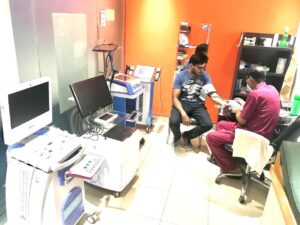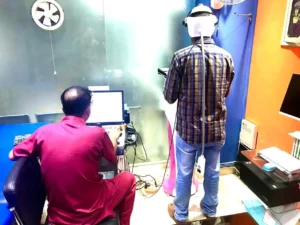Prostatitis is a common but often misunderstood condition that is the prostate gland, a crucial part of the male reproductive system.
What Is Prostatitis?
Prostatitis is an inflammation of the prostate gland, a small but crucial organ in the male reproductive system. Think of it as the body’s signaling that something’s not quite right in this vital area.
Types of Prostatitis
- Acute Bacterial Prostatitis: Acute bacterial prostatitis is like a sudden invasion of harmful bacteria in your prostate.
- Chronic Bacterial Prostatitis: Chronic bacterial prostatitis is like a recurring rainshower of bacterial infections in your prostate. It’s not as intense as acute prostatitis but can be persistent.
- Chronic Pelvic Pain Syndrome (CPPS): CPPS is like having a constant, nagging pain in your pelvic area that won’t go away. Bacteria do not always cause it and can be challenging.
- Asymptomatic Inflammatory Prostatitis: This type is a bit sneaky because it doesn’t show many symptoms. It’s like a quiet inflammation in your prostate that goes unnoticed.
How common Prostatitis is it?
Prostatitis is one of the most common medical conditions in men of all ages that affects the urinary tract. It is thought that between 10 and 15% of men will have signs of prostatitis at some point in their lives.
Prostatitis Causes
- Bacterial Infections: Sometimes, nasty bacteria find their way into your prostate, causing trouble.
- Non-bacterial Causes: Prostatitis can also happen due to non-bacterial factors, like inflammation or muscle issues. It’s not always germs causing the problem.
- Age and Lifestyle Factors: Age does play a role, but how you live your life matters too. Diet, sexual activity, and habits can contribute to prostatitis.
Prostatitis Symptoms
- Pain and Discomfort: Prostatitis can bring on pain and discomfort in your pelvic region, back, and even during bowel movements. It’s like having a constant ache that won’t let up.
- Urinary Symptoms: Imagine needing to pee all the time or experiencing painful urination.
- Sexual Dysfunction: Prostatitis can interfere with your sex life, causing problems like erectile dysfunction or discomfort during ejaculation. It’s essential to address these issues.
Prostatitis Diagnosis
- Medical Evaluation
Doctors will ask questions and examine you to understand what’s going on. Think of it as a prostate detective mission.
- Tests and Diagnostic Procedures
Sometimes, more evidence is needed. Urine tests, blood tests, and imaging may be used to gather clues.
Prostatitis Treatment
- Prostatitis Antibiotics and Medications
If bacteria are the culprits, antibiotics come to the rescue. Prostatitis antibiotics can help with pain and inflammation, too.
- Lifestyle Changes
Lifestyle adjustments like a healthier diet, regular exercise, avoiding long hours sitting in your office, and stress management can contribute to managing prostatitis.
- Alternative Therapies
Exploring alternative therapies such as acupuncture or physical therapy can provide relief and support.
Prostatitis and Fertility
Prostatitis can impact fertility, so if you’re planning a family, it’s crucial to understand how prostatitis might affect your fertility.
When to See a Healthcare Provider
- Persistent or Severe Symptoms: If you experience persistent or severe symptoms of prostatitis, such as intense pain in the pelvic area, high fever, or extreme discomfort.
- Urinary Difficulties: If you notice changes in your urinary habits, such as frequent urination, painful urination, difficulty starting or stopping urination, or blood in the urine, consult a healthcare provider.
- Sexual Dysfunction: If you experience sexual dysfunction, such as erectile dysfunction, painful ejaculation, or decreased sexual desire.
- Symptoms that keep coming back: If you’ve had prostatitis before and your symptoms keep coming back, you should see a doctor.
- Unexplained Pain: Persistent pain or discomfort in the pelvic area, lower back, or rectum without an apparent cause should be evaluated by a healthcare provider.
- Concerns about Fertility: If you plan to have children and suspect that prostatitis may affect your fertility, consult a healthcare provider. They can assess your reproductive health and guide fertility preservation options.
- Emotional Distress: If prostatitis is causing significant emotional distress, anxiety, or depression, it’s important to discuss your feelings with a healthcare provider.
Prostatitis Preventing
- Keep up with your cleanliness: Good hygiene is very important. Keeping the genital area clean helps stop the spread of germs and lowers the chance of getting an infection. Make sure to clean the genital area well.
- Stay hydrated: Drinking a lot of water makes you urinate more often, which can help flush bacteria out of your urinary tract and lower your risk of infection.
- Empty Your Bladder Regularly: Avoid holding in urine for extended periods. Frequent urination helps prevent the buildup of harmful bacteria in the urinary tract.
- Maintain a Healthy Diet: A balanced diet full of fruits, veggies, and whole grains is good for your health as a whole, including the health of your prostate. Some studies show that lycopene-rich foods, like tomatoes, may be good for you.
- Regular exercise: Being physically active helps keep your immune system and general health in good shape, which makes you less likely to get sick.
- Manage Stress: Long-term stress can make your immune system weaker and may make you more likely to get prostatitis. Relaxation activities, yoga, and meditation are all good ways to deal with stress.
- Avoid Excessive Alcohol: Limiting alcohol intake can help maintain a healthy urinary system.
- Maintain a Healthy Sexual Lifestyle: Engage in sexual activity in a comfortable and pleasurable way. Avoid practices that cause discomfort or pain, as they can contribute to prostatitis.
- Regular Medical Check-Ups: Visit your healthcare provider for regular check-ups. Discuss any concerns about your prostate health and follow their recommendations.
Prostatitis Complications
Certainly, prostatitis, if left untreated or poorly managed, can lead to various complications.
- Chronic Prostatitis: If acute bacterial prostatitis is not treated adequately, it can become chronic bacterial prostatitis. Chronic prostatitis is characterized by recurring or persistent bacterial infections in the prostate gland. It can lead to long-term discomfort and impact your quality of life.
- Abscess Formation: In serious cases of acute bacterial prostatitis, pus can gather in the prostate gland and form an abscess. This can be very painful, and the bacteria may need to be drained by surgery.
- Prostate Stones: Prostatitis can sometimes cause small lumps or stones to form inside the prostate gland. These stones can get in the way of the prostate ducts and cause more swelling.
- Urinary Complications: Prostatitis can cause bladder symptoms like the need to go to the bathroom right away, pain when you urinate, and having to go often. It can sometimes cause urine accumulation, which makes it hard to empty the bladder.
- Sexual Dysfunction: Chronic prostatitis or ongoing discomfort can interfere with sexual function. It may lead to erectile dysfunction, pain during ejaculation, or reduced sexual desire, affecting your sexual well-being and relationships.
- Infertility: Prostatitis can change the way sperm move and how well they work. In some cases, it can make it hard to have children. If a man wants to have children and thinks prostatitis might affect his sperm, he should see a doctor.
- Psychological Effects: Living with chronic prostatitis can be emotionally challenging. The pain and discomfort associated with the condition can lead to anxiety, depression, and a decreased overall quality of life.
- Impact on Relationships: Prostatitis can affect intimacy and sexual relationships. During this hard time, it’s important to talk openly with your partner if you want to keep your relationship healthy.

